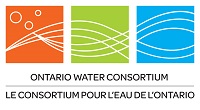Facilitating collaborative discussions, fostering synergistic connections, and unlocking fresh opportunities, this working group unites water centers and institutes within OWC's network to advance knowledge sharing, multi-institutional cooperation, and funding prospects.

OWC's water centers and institutes showcase a wide range of research expertise, from cutting-edge technologies in water purification to innovative approaches in sustainable water conservation, demonstrating their comprehensive approach to tackling water-related issues.
The Lambton Water Centre as part of Lambton College’s Research & Innovation department is a multi-disciplinary centre established in 2013. Our focus is on supporting the improvement, development and commercialization of water and wastewater treatment technologies, systems, products and services for both municipal and industrial applications. The Centre strives to be a leader in addressing and solving current global water challenges through excellence in applied research, innovation and education.

The G360 Institute for Groundwater Research is a multi-disciplinary, field-based academic group founded at the University of Guelph in 2007 by Dr. Beth Parker. Our mission is to enable evidence-informed groundwater resource stewardship by providing world-class training and collaboration to advance knowledge, professional practice, and policy. We specialize in development of methods and tools for high-resolution characterization and monitoring, focusing on fractured bedrock aquifers underlying contaminated industrial sites; sustainability and ecosystem protection; and potential impacts to groundwater from oil and gas development.

Great Lakes Institute for Environmental Research (GLIER) was founded in 1981 to provide dedicated research and training to protect and conserve the Great Lakes while generating knowledge to help manage these unique and diverse ecosystems. Scholarship responsive to invasive species and ballast water management, contaminants, eutrophication and harmful algal blooms, fisheries management and species at risk has helped to shape federal and binational policy aimed at restoring, protecting and managing our Great Lakes.

The Institute for Water Innovation (IWI) is a multi-disciplinary, multi-departmental network focused on expediting research and development of advanced water technologies by sharing knowledge, ideas, and resources. IWI strives for global leadership in water research by developing breakthrough technologies that address challenges in urban drainage systems and water distribution networks; chemical and microbial characterization of water systems; water and wastewater treatment (including desalination and industrial waters); and remediation and restoration of contaminated waters

Urban Water TMU is a collective of experts whose mission is to establish a healthy urban water cycle in support of building healthy cities through research, education, and policy. Urban Water Research Centre comprises more than 40 members across 6 faculties and 13 departments. Our researchers work on all aspects of water in both natural and built environments, ranging from local work to studies across multiple watersheds. Research includes modeling municipal infrastructure services, urbanizing watersheds, green infrastructure/LID, water/wastewater optimization, microbiology, aquatic organisms, engineered wetlands, oxygen transfer, phosphorus transport and more. We also undertake a number of water related policy and education initiatives.

The WesternWater Centre (WWC) concentrates on conducting research that leads to innovative solutions addressing management and treatment of water supplies. Since opening in 2020, the centre has grown rapidly, with more than 16 state-of-the-art laboratories, 19 associated faculty members, and more than 100 graduate students. The WWC fosters countless partnerships with industry and government actors across the country to provide expertise and solutions.

The University of Waterloo established the Water Institute in 2009 to provide an on-campus network of excellence in water research, education, and innovation, with a particular focus on promoting interdisciplinarity. Water Institute researchers represent a wide breadth of disciplinary expertise with a membership of over 150 faculty members and 300 graduate students, who collectively span all six Waterloo academic faculties. The Water Institute is ranked among the world’s top water research organizations.


